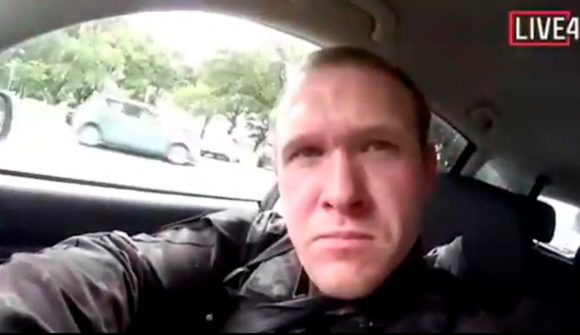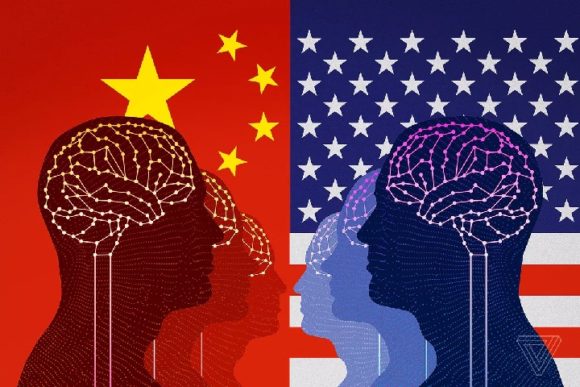 The Marlboro cowboy and Joe Camel were mainstays in cigarette advertising.
The Marlboro cowboy and Joe Camel were mainstays in cigarette advertising.
Dear Commons Community,
Jeneen Interlandi has an editorial in today’s New York Times entitled, “Vaping Is Big Tobacco’s Bait and Switch,” which raises concerns about the popularity of vaping with teenagers. She asks alarming questions that our health regulatory organizations should consider Below is the entire editorial.
Tony
——————————————————————————————————————————
Vaping Is Big Tobacco’s Bait and Switch
By Jeneen Interlandi
Ms. Interlandi is a member of the editorial board.
March 8, 2019
I was 15 when I started smoking, and so were most of my friends. We smoked to rebel against our parents but also to identify with them — of course they smoked, even as they told us not to. We smoked because it was feminine and sexy, and also masculine and tough. Because celebrities did it, and they looked cool. Because the prissy kids didn’t do it, and we weren’t them. Because cigarettes were both forbidden and easy to get: ten quarters in a cigarette vending machine, which you could still find in most pizza joints and doughnut shops in suburban New Jersey in the early 1990s.
All of that — the appeal, the access, the illicitness of cigarettes — was by design. By the time my friends and I were born, cigarette makers had stitched their products into the fabric of our culture so thoroughly that not even a century’s worth of research tying those products to an array of slow, painful deaths was enough to deter many of us.
Tobacco companies made cigarettes a diet tool and a matter of high fashion. They made smoking a feminist act. They didn’t just assure the public that it was safe to smoke; they used doctors to push their brands. And the more they came to understand their own product, the more they advertised cigarettes to the young. Most people who don’t start smoking by the end of adolescence never will. The cigarette makers knew that. They used cartoon camels, pictures of Santa Claus and larger-than-life cowboys in their ads.
It helped that their key ingredient was highly addictive. It also helped that they were willing to lie. When concerns emerged about nicotine dependence, cancer and heart disease, they kept regulators at bay by playing up scientific uncertainty. Then they bought off scientists and disguised corporate propaganda as independent research. By the time their deceptions were exposed, a new generation of smokers — promising billions of dollars in industry revenue — was already hooked.
In the late 1990s, Big Tobacco was finally brought to account for its practices, and a string of public health policies were put in place that over the past three decades have all but eliminated the scourge of teen smoking. But many of us who became tobacco consumers at 13, 14, 15 remain so at 39, 40, 41. And in recent years, we have watched history repeat itself.
The tobacco industry is pushing a new kind of smoking device — the e-cig or vape pen — that it says is far healthier than traditional cigarettes: no tobacco, no tar, just nicotine and flavored vapor. These devices, the industry says, will finally help us adult smokers quit or curb our habit. But here’s the rub: E-cigs have brought smoking back into vogue for teenagers. As a result, the cost of this new cure may be another generation exposed to the same addiction we are still fighting.
Tobacco remains the leading cause of preventable death in the United States. Smoking kills some 480,000 people a year — more than AIDS, car accidents, illegal drugs and suicide combined — and costs $170 billion in annual health care expenditures, according to the Centers for Disease Control and Prevention. E-cig makers say, and some health experts believe, that e-cigs could help lower these terrible numbers, because they contain far fewer toxins than traditional tobacco cigarettes. The thinking goes that if all current smokers switched to these devices, the burden of disease and death could be dramatically cut.
Few have been more captivated by this argument than Scott Gottlieb, the departing commissioner of the Food and Drug Administration, the federal agency responsible for regulating tobacco and nicotine products.
Since he assumed his role at the agency two years ago, Dr. Gottlieb has tried to strike a balance between encouraging adult smokers to switch to e-cigs and keeping the devices away from minors. Children and teenagers face disproportionate risk from smoking, in part because nicotine is known to harm the developing brain. In 2016, the F.D.A. prohibited the sale of e-cigs to minors, and issued a string of new regulatory requirements for vaping devices. Then, under Dr. Gottlieb’s tenure, the agency extended the deadline for meeting those requirements by several years, while also announcing plans to curb the nicotine content of regular cigarettes.
That plan backfired last year, when teen vaping reached epidemic proportions. Dr. Gottlieb has since tried to put the industry in check by, among other things, forcing e-cig makers to devise plans for keeping their products away from kids and issuing thousands of warning letters to retailers caught selling nicotine products to minors.
have responded to that pressure with a bait-and-switch that would make their Big Tobacco predecessors proud.
Juul, the company most responsible for the surge in teen vaping, scrubbed its Facebook and Instagram accounts and agreed to dramatically restrict sales of its most youth-friendly flavors, like mango, crème and fruit. But the company also received a $12.8 billion minority investment in December from the tobacco giant Altria, a move that will allow Juul products to be displayed alongside regular cigarettes in the nation’s brick and mortar retail outlets. For its part, Altria volunteered to withdraw all of its flavored-pod products from the market until the youth vaping epidemic was resolved. Dr. Gottlieb and others say the Juul combination with Altria severely undercuts that promise.
Dr. Gottlieb’s boldest antismoking efforts, which include reducing nicotine levels and banning menthol flavors in traditional cigarettes, are still in the planning stages. It’s unclear whether his successor will shepherd them into policy.
In the meantime, according to Reuters, a slew of Juul copycats are making their way into convenience stores in defiance of an F.D.A. rule banning the sale of new e-cig products after August 2016. Juul is promoting itself as a health-conscious company, even as it develops new, potentially more addictive vaping products. And Philip Morris International has created a nonprofit — the Foundation for a Smoke-Free World — through which it has tried to partner with the World Health Organization. The foundation’s stated goal is to reduce the global health burden of cigarette use. But according to tobacco industry watchdogs, leaked P.M.I. documents suggest that its true aim is to promote the company’s own vaping products.
None of this should come as a surprise. The tobacco industry was built around a product that is inherently dangerous and unhealthy. And it has a long history of duplicity.
There are still many unanswered efficacy and safety questions about e-cigs. It’s unclear how well they work as a smoking cessation tool. And while they are almost certainly safer than regular cigarettes, they are not necessarily safe. Health officials know next to nothing about the flavorings or about other chemicals generated by the heating of e-liquids. They also don’t know how many teenagers who start using e-cigs will move on to tobacco products.
In the absence of such information, some e-cig proponents have fallen back on a trope from the previous tobacco wars: Smoking should be a matter of personal choice and personal responsibility. That argument is not entirely wrong. Nicotine and tobacco are, after all, legal substances, and if e-cigs do prove safer than regular cigarettes, adult smokers should be encouraged to switch.
But the next F.D.A. commissioner would be wise to carry out the work that Dr. Gottlieb started — to keep all nicotine products from reaching underage users. I take full responsibility for choosing to smoke. But I wish that someone would have made it harder for 15-year-old me to do so. I hope the powers that be will do at least that much for the teenagers of today.
 “This is one of New Zealand’s darkest days,” said Prime Minister Jacinda Ardern.
“This is one of New Zealand’s darkest days,” said Prime Minister Jacinda Ardern. Brenton Tarrant – One of the Alleged Killers in New Zealand Mosque Attacks
Brenton Tarrant – One of the Alleged Killers in New Zealand Mosque Attacks







